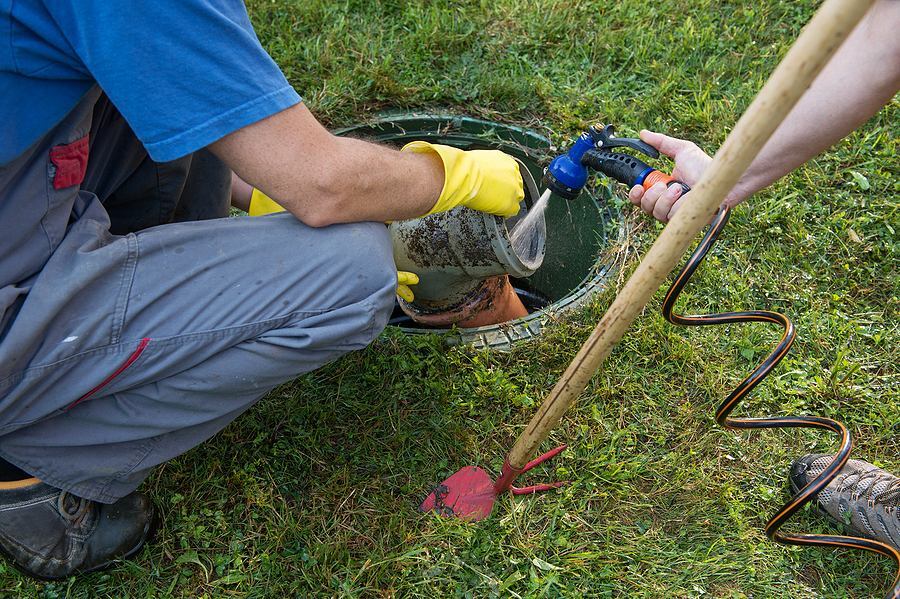Get It Safely Pumped Today
Get It Safely Pumped Today
Your septic system works hard every single day, and the way you treat it in between professional visits has a big impact on how long it lasts and how well it runs. At Septic Pumping of Raleigh, we have seen systems fail way sooner than expected simply because homeowners were not given the right information about everyday care. Thankfully, a few good habits can protect your system, save you money, and prevent emergencies. Keep reading to learn the steps that make the biggest difference.
Your septic system is designed to break down natural waste and water. Anything else can cause stress, clogging, or buildup inside the tank and drainfield. One of the most important rules is to avoid flushing items that aren’t biodegradable. Wipes, feminine products, paper towels, and cotton balls don’t break down properly. They settle in the tank and can block pipes. Even products labeled as flushable tend to cause problems. Kitchen drains need the same kind of care. Grease, fats, and cooking oils harden inside the pipes. They narrow the space where wastewater can flow. The buildup usually requires professional septic cleaning to correct. Food scraps, coffee grounds, and eggshells also create excess solids in the tank. Instead of sending these items down the disposal, scrape plates into the trash or compost. Household chemicals are another concern. Drain cleaners, bleach, and strong disinfectants kill off the natural bacteria that keep your septic system working. When those bacteria are harmed, solids break down more slowly, which increases the risk of backups. Choose gentler cleaning products and use only the amount you need. These simple changes protect your septic service investment and prevent emergency repairs.

How much water flows through your home each day matters more than most people realize. Septic systems are able to handle a certain volume of wastewater. When that limit is exceeded, solids are more likely to escape into the drainfield before they have been broken down. This can shorten the life of your system and lead to expensive failures. One way to reduce strain is to spread out heavy water use. For example, avoid running the washing machine, dishwasher, and shower all at once. Instead, space these tasks across the day. Fixing leaky faucets and toilets is another important step. A small leak can still send hundreds of gallons into your tank over the course of a month. Installing low-flow toilets and showerheads is another simple upgrade that can make a big difference. It also helps to think about landscaping. Direct roof drains and surface water away from the drainfield. Too much water in the soil can prevent proper treatment and slow down the system.
The drainfield is where treated water is released into the soil. It is one of the most important parts of your septic system, yet it is normally overlooked. Protecting it starts with knowing where it is located. Once you identify the area, keep heavy vehicles, equipment, and frequent foot traffic away from it. Pressure from above can compact the soil or damage the pipes. Avoid planting trees or shrubs with large root systems near the drainfield. Roots naturally seek water and nutrients, which makes them likely to invade and block the pipes. Grass is the safest ground cover because it holds soil in place without creating deep root systems. If you want additional landscaping, choose shallow-rooted plants that do not spread aggressively. Winter care also matters. Snow plows and heavy equipment can damage underground parts of the system if they pass over the drainfield. Even in warm climates, it helps to remember that this area of your yard needs to stay undisturbed. Protecting it now prevents the need for premature septic tank cleaning or repairs later.
No matter how careful you are, every system needs regular professional attention. Solids build up in the tank and eventually need to be removed, which is why septic tank pumping and septic tank cleaning are so important. Skipping these visits is one of the fastest ways to damage your system. Most homes need septic tank pumping every three to five years, but the right schedule depends on the size of your tank, the number of people in your household, and your water use habits. A reliable septic company can give you a clear recommendation based on your situation. Following their guidance saves you from unexpected emergencies. During a service visit, a technician will also check for early signs of trouble. Cracks, leaks, or weak areas in the system can be caught before they turn into full breakdowns. Professional septic cleaning removes buildup and keeps the tank working as designed.
Caring for a septic system requires steady, daily habits that keep everything working the way it needs to. Watch what goes down your drains, use water wisely, and protect your drainfield. When paired with professional visits, these steps extend the life of your system and keep your home safe from backups and repairs. Your septic system is one of the most important parts of your home, and it deserves attention. The choices you make each day keep it running, but professional care is what guarantees long-term health. Septic Pumping of Raleigh is the septic company local families trust. When you schedule routine septic pumping and inspections with us, you know your system is in good hands. Call today to schedule your next appointment.
Standing water in your yard is never a good sign, but when it shows up near your septic tank, you'll want…
Scheduling a septic service appointment is easy enough, but most homeowners have no idea what's supposed to happen once the truck…
Anyone can show up with a truck and a hose, but septic work isn't just about pumping and leaving. The difference…
The buried tank in your yard works around the clock to process everything that goes down your drains. And, it does…